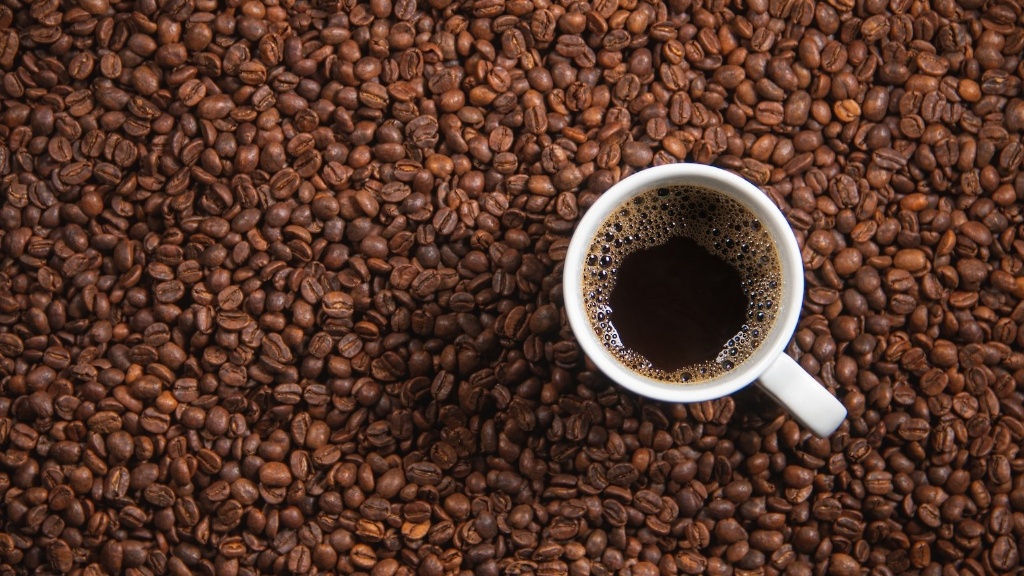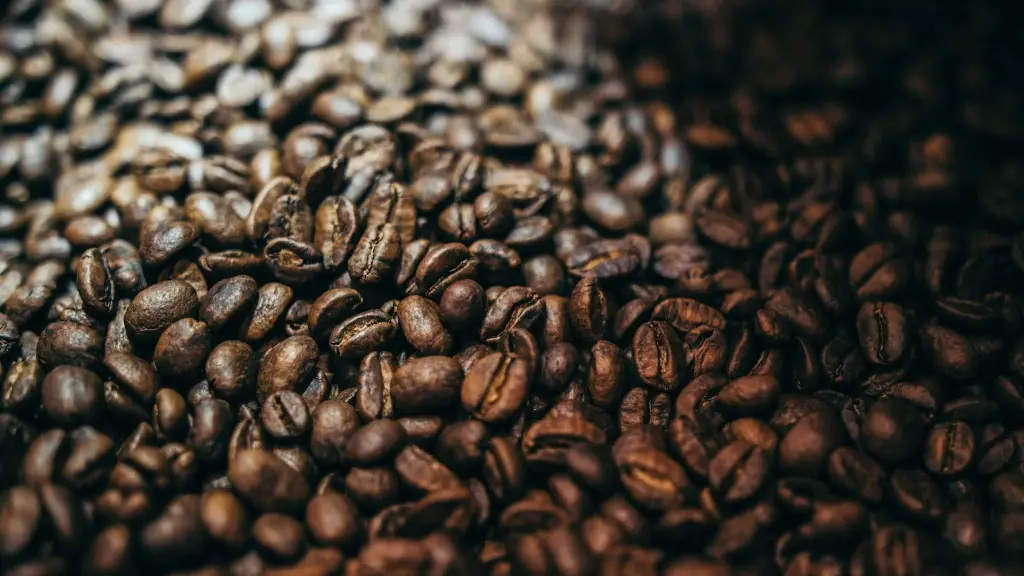It’s no secret that caffeine and other stimulants in coffee can provide a much-needed energy boost. But how does caffeine affect your workout, and does it increase fat-burning? Recent research suggests that drinking coffee before a workout can help burn fat, but is it worth the effort?
An average cup of black coffee has about 95 mg of caffeine, which is enough to increase the body’s fat-burning rate during exercise. Caffeine increases levels of epinephrine (a hormone that helps the body burn fat) and activates a particular type of fat, called brown fat, which helps the body burn calories. Additionally, drinking coffee can improve physical performance, leading to a more efficient overall workout.
However, not everyone responds to caffeine in the same way. Some people experience a greater boost in their energy levels and an improved performance after drinking coffee, while others may not notice any difference. Furthermore, drinking too much coffee may lead to negative side effects, such as jitteriness, anxiety, and a higher heart rate, which can make it difficult to focus during a workout.
For best results, it is recommended to limit your caffeine intake to no more than 400 mg per day—roughly three to four cups of coffee. Additionally, it is important to consider other factors, such as how often you exercise and the intensity of your workout. If you are someone who generally does not consume a lot of caffeine, it may be better to avoid having coffee just before a workout in order to avoid any negative side effects.
In short, drinking coffee before a workout may help burn fat and improve physical performance, but it is important to consider your own body’s sensitivity to caffeine and to remember to limit your intake. Ultimately, it is up to the individual to decide whether or not to have coffee before a workout—as long as it is consumed in moderation, it can be a great way to get an extra energy boost before hitting the gym.
Factors to Consider
When determining whether or not to have coffee before a workout, there are a few important factors to consider. First, it is important to consider your own caffeine sensitivity. If you are someone who does not consume a lot of caffeine on a regular basis, it may be better to avoid drinking coffee just before a workout. Additionally, it is important to be aware of your body’s overall caffeine intake, as consuming more than 400 mg of caffeine in one day can lead to negative side effects.
It is also important to take into account the type of workout you are doing. If you are engaging in high-intensity exercise such as HIIT or sprints, having coffee beforehand may provide an extra energy boost. However, if you are doing low-intensity exercise such as walking or yoga, having coffee may not be necessary.
Finally, you should pay attention to the other substances in your coffee. Many coffee drinks contain added sugars, flavoring, and creamers, which can add extra calories to your diet. If you are watching your calorie intake, it may be better to limit these additives or opt for a plain cup of black coffee instead.
Expert Opinions
Experts are divided on whether or not coffee before a workout is beneficial. Some say that it can provide an extra boost of energy and help burn fat, while others argue that it is best to avoid drinking coffee prior to exercise.
Dr. Tom Billings, a sports nutritionist, believes that coffee should be consumed in moderation. “Coffee can provide an additional energy boost before a workout, but it is important to pay attention to your body’s caffeine sensitivity,” he says. “It is also important to remember that other substances, such as added sugar, can add extra calories to your diet.”
Alternatively, fitness expert Lee Anne Muldoon suggests avoiding coffee before a workout altogether. “While a cup of coffee may provide an energy boost, it can also lead to negative side effects such as jitteriness and anxiety,” she explains. “These side effects can make it difficult to focus during your workout.”
Pre-Workout Alternatives
If you are looking for a pre-workout energy boost without the jitters, there are a few alternatives to consider. For example, some experts suggest drinking green tea before a workout, as it contains caffeine but does not produce the same side effects as coffee. Additionally, some people find that plant-based sources of caffeine, such as matcha and guarana, can provide an energy boost without any negative side effects.
Other alternatives include drinking coconut water or a smoothie before a workout. These drinks contain electrolytes and simple carbohydrates, which can help provide a quick energy boost without any added caffeine. Additionally, eating a small snack before a workout, such as a piece of fruit, can help provide quick energy without overloading on caffeine.
Health Benefits of Coffee
In addition to providing an energy boost before a workout, drinking coffee can also have several health benefits. For one, coffee has been linked to a lower risk of type 2 diabetes, as well as a lower risk of cardiovascular disease. Additionally, coffee is a good source of antioxidants, which can help reduce inflammation and protect the body from damage caused by free radicals.
Furthermore, drinking coffee can help improve mental alertness, focus, and memory. Coffee’s stimulating effects on the brain can help increase productivity and improve cognitive performance, making it a great addition to any morning routine.
Finally, drinking coffee can help improve physical performance. Caffeine has been shown to reduce fatigue and increase endurance, which can lead to improved athletic performance. Additionally, drinking coffee can help boost the metabolism, which in turn can help the body burn calories more efficiently.
Limitations of Drinking Coffee
Despite the potential benefits of drinking coffee, it is important to be aware of its potential drawbacks. Consuming too much caffeine can lead to negative side effects, such as jitteriness, anxiety, and insomnia. Furthermore, studies suggest that drinking large amounts of coffee may lead to a decreased risk of heart disease, which can be a concerning issue for those who already have heart problems.
Additionally, some people may be sensitive to the acidic nature of coffee and experience stomach irritation if they drink large amounts. For these reasons, it is important to be mindful of your own body’s reactions to coffee and to limit your intake to no more than 400 mg per day—roughly three to four cups of coffee. It is also important to note that coffee does contain small traces of other substances, such as aluminum and arsenic, so it should not be consumed in excess.
Interactions with Medication
It is important to be mindful of the interactions between coffee and certain medications. Caffeine can interact with certain drugs, such as antibiotics and birth control, and can reduce their effectiveness. Additionally, it is important to note that drinking coffee may interact with certain mental health medications, such as SSRIs and benzodiazepines, and can cause side effects such as increased agitation and anxiety. Therefore, if you are taking any medications, it is best to speak with your doctor before drinking coffee.
Alternatives for Caffeine Sensitivity
For those who are sensitive to caffeine or who want to avoid it altogether, there are a few alternatives that can provide a similar boost of energy. For example, herbal teas, such as green tea, can provide an energy boost without the potential negative side effects of caffeine. Additionally, amino acid supplements, such as l-theanine and taurine, have been shown to improve mental alertness and focus without the stimulating effects of caffeine.
Finally, exercise itself can be a great way to increase your energy levels and provide an overall boost in mood. Taking part in physical activities such as running and cycling can improve blood flow and boost energy levels, making it easier to focus and feel energized throughout the day. Additionally, getting enough sleep is crucial for maintaining energy levels and feeling energized throughout the day.





